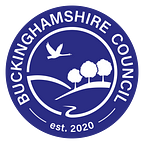Celebrating Ramadhan
Hi guys! My name is Aisha Rafiq and I provide Communication Admin Support to the Comms Team as a Kickstarter. Today I want to talk to you about a very special celebration that is recognised every year by the Muslim community, and that is Ramadhan or Ramazan.
What is Ramadhan?
Ramadhan is the ninth month on the Islamic calendar and lasts either 29 or 30 days, usually starting at the beginning of April and ending in early May. It is an observance for Muslims all around the world to be appreciative for what they have and reflect on those who are more disadvantaged than us. During Ramadhan we abstain from food and water, sexual activity, immoral behaviour and thoughts, false words and smoking. Ramadhan is one of the main pillars of Islam along with the Shahadah (declaration of faith), Salat (prayer), Zakat (charity) and the Hajj pilgrimage. Learn Religions offers a great overview of the five pillars, Muslim prayer, and what it means.
What does Ramadhan look like for me?
In my household, Ramadhan is typical of many Muslim households. We get up before sunrise (Suhoor) pray Fajr, the first daily prayer, and have a meal such as a paratha with sabzi (vegetables) with a cup of chai (tea).
As I have work later that morning my routine will also include exercise such as walking to work. I use an app called StepsApp to help me calculate how many steps I’ve done in a day. It then provides a graph that shows how many steps I’ve done throughout the week. As well as showing how many calories I’ve burnt. It is great encouragement to keep active!
During my working day, I use the time I have set aside for my breaks for further research to develop my knowledge of Islam and for daily prayer. I make sure those around me are aware that I am fasting, and I am happy to answer any questions they may have and discuss Ramadhan with them, it helps them understand and respect my views.
I remind myself not to put too much pressure on myself in this Islamic month, I know I can reach out for support when I need it. I know I can always go to my colleagues, family, and other Muslims in the community for support.
When it is sunset, I will be able to open my fast. This is called Iftari. Usually opened with a kajoor (a date), different foods like samosas, pakoras and sheesh kebab are common foods that are eaten. In the time between sunset and sunrise I can digest as much food and water as I wish.
How did COVID19 affect my Ramadhan last year?
We can put our hands up and say observing Ramadhan last year was a difficult time for us all. Changes were made to how we celebrated Ramadhan such as staying at home and observing the social distancing rules. This meant less exercise, working from home and less food.
This year Ramadhan is a lot more at ease with most restrictions now lifted. This year, there is a lot more food being made, and more exercise done. Overall, I can say that I am achieving a healthier lifestyle compared to last year. I’ve felt a lot more positive about my diet and my mood has lifted. I am walking more, which means I am getting some sort of exercise outside of work. This year, I will be able to spend Eid-ul-Fitr with my family. Which is a celebration from the strength of the previous month. (It marks the end of Ramadhan) It is celebrated with family and friends, lots of food and exchanges of gifts.
More on Ramadan
Ramadan and us (mum and daughter on Ramadan) (April 2022)
Ramadan and your questions (April 2022)
Ramadan and food (April 2022)
